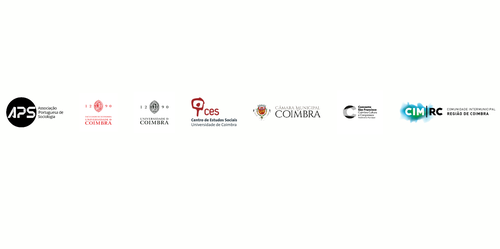Chamada para trabalhos |Globalization, Politics and Citizenship
Coordinators:
Fernando Bessa Ribeiro (UMinho)
Alcides A. Monteiro (UBI)
João Carlos Graça (ISEG-UL)
Globalization, Politics and Citizenship is a thematic section concerned with the critical debates on global dynamics, with a special attention to the impacts that social problems and conflicts posit to citizens and States. Involving multiple fields – social, economic, environmental and cultural –, this thematic section seeks to benefit from the theoretical and empirical contributions of sociologists and other social scientists working on globalization, politics and citizenship in the most diverse geographies and scales.
Change is a frequent topic in sociology, sparking debate and spurring much research. Since 2020, the pandemic has been seen as the main stimulus for general, economic, social and political transformation. In the most diverse fields - politics, economy and media – many try to identify irreversible dynamics that would change the material conditions of existence and ways of life. Today we can argue that change is not leveraged by the pandemic, despite the impacts produced by humanity on the environment and wild life, also putting the relationship between nature and society in the debate. But the world is changing. Multiplying the political and social polarizations in many countries, namely in Europe and the United States of America, also involving religious disputes, as in Brazil, India and Iran, the change has long been perceived by those interested in the study of the capitalist world system and its dynamics. It is clear that we are witnessing a rare but exceptionally disturbing historical period. This is characterized by the transfer of power, knowledge and wealth from the West to the East, with “hot” and “cold” conflicts involving the United States of America, China and Russia – the latter a somewhat lesser opponent, but with the strength conferred on it by the possession of an enormous nuclear arsenal. Producing a literal “arms race”, this dispute for hegemony, which history teaches us, since the struggles between Athens and Sparta, lead to direct military confrontation between rivals, occurs in a context marked by the health-and-environmental crisis. In other words, pandemic, war and environmental devastation are painful expressions of our time, forcing us to place at the centre of the debate on globalization, politics and citizenship the risks of both environmental catastrophe and nuclear catastrophe. If environmental problems call governments to multiply their actions, showing the strength of the Nation-state, hastily considered exhausted, never since the Cuban missile crisis (1962) have we faced the frightening proximity of the atomic catastrophe. If all transitions of hegemony were marked by war, the one unfolding before our eyes takes on a terrifying tone, as the atomic arsenal available is largely sufficient to destroy humanity and a good part of the most diverse forms of life.
For this thematic section, we are calling for contributions from different theoretical and methodological approaches, based on empirical research in non-European contexts, and focused in one of the following topics:
(i) Crises, wars and the re-composition of the world;
(ii) “Arms race”, State and peace policies;
(iii) Environmental risks, State and social movements;
(iv) Public action and the strength of the Nation-state in crises;
(v) Polarizing conflicts, political violence, hate speech and social disqualification.
Posters and visual documents or short films about projects or interventions will be accepted. These proposals, despite the differences between academic and non-academic contexts, must be formulated considering a theoretical framework, objectives, methodology, analysis, discussion and conclusions.
The rules and deadlines to consider for the submission of abstracts, as well as more information about the XII Portuguese Congress of Sociology, can be consulted on the APS website at http://www.aps.pt.
The Thematic Section's coordination will select the best communications to be proposed for publication in the journal SOCIOLOGIA ON LINE
PDF Version
